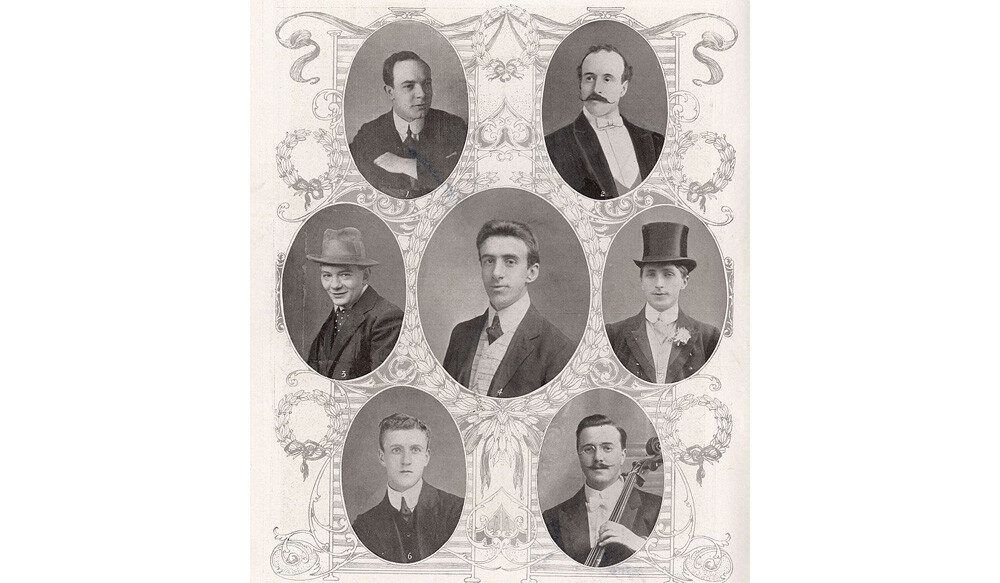If you owe money thanks to student loans, there’s a chance you saw some relief over the last four years, because the government has forgiven $168 billion in student debt. The beneficiaries of this program are quite happy, while other people have complaints, such as “This is a clear attempt to buy votes” and “You should have instead given the $168 billion to me.”
Paying your own debts may be the responsible thing to do, but there are situations where the person getting the bill deserves a little slack. For example, most people would agree about disputing the bill when, say…
Freed World War II Concentration Camp Prisoners Were Charged Rent
You may have a lot of excuses for why you’re late with this month’s rent. Maybe you’ve been unable to work full-time, because you’re secretly Spider-Man, or maybe all your money was stolen, and Spider-Man was not there to intervene. We think one of the more compelling excuses we’ve ever heard is, “The Holocaust just happened, and I didn’t pay rent on time because I was in a concentration camp.”
After World War II ended, 240 concentration camp inmates who returned to Amsterdam discovered that they were on the hook for rent during their time away. Furthermore, they were being fined, for having missed so many payments. The were being billed and fined, not by private landlords but by the government, who owned the properties. Given how insignificant these sums were compared with the war expenses the government had to deal with, Amsterdam really could have afforded to let this slide.
During those war years, these homes had been occupied by Nazis, since the whole country was under Nazi occupation, so you’d think that if anyone should have received the bills afterward, it’d be Nazis. Some of the homes had been occupied by Nazis, anyway. Others had been bombed and destroyed. The concentration camp survivors were on the hook for paying the rent on the bombed homes, too.
The City of Amsterdam eventually did acknowledge that these bills had been unjust, and they issued refunds. They had to send the refunds to the descendants of the renters, because they sent these out 70 years later, in 2015.
Families of the ‘Titanic’ Band Were Billed for Their Uniforms After the Sinking
Thanks to the movie Titanic, we know that four musicians kept the doomed passengers’ sprits up by bravely continuing to play music, even as the ship sank. That’s not true to what really happened. In reality, eight musicians kept the doomed passengers’ sprits up by bravely continuing to play music, even as the ship sank. Other than that, the depiction was accurate.

Once two weeks had passed since the sinking, a recovery team had found the musicians’ bodies but had not yet identified which was which. This was when Andrew Hume, father of dead Titanic violinist John Hume, received a bill in the mail. It was charging him for his son’s uniform. The uniform was still on the corpse at the time, which was how the body had been identified as a musician (but could not be identified as John specifically).
The bill charged him five shillings and four pence for recent alterations, including stitching a badge on the jacket representing the White Star Line. Normally, the musicians’ salary included a uniform allowance, which would have more than covered this expense, but their employers had canceled this benefit right before the voyage. Andrew Hume never paid the bill.
Incidentally, this would have been John Hume’s last voyage whether or not the Titanic sank. He had been planning to quit, to marry his fiancée, who’d just become pregnant. We can only imagine the incredulous eyerolls if this had made it into the movie — the ill-fated violinist optimistically announcing this is his one last job before retirement, so he can go home to his girl and be a dad. That would seem like such a ridiculous Hollywood touch. It would be, in fact, something like when the movie filmed a scene of characters cracking jokes about putting bits of the iceberg into their drinks, which is something the actual passengers did but seemed too ridiculous on-screen to believe.
After a Hurricane, Comcast Billed Customers for Not Returning the Ruined Equipment
In 2008, after Hurricane Ike, some Texas Comcast customers received a surprising notice. First, they were getting a $66 credit to their account, to make up for how Comcast failed to offer phone service for a couple weeks. Second, they were each getting charged $1,000, for damaged equipment such as modems, since they had been renting this stuff from Comcast.

If we’re debating whether it’s reasonable for Comcast to charge customers so much for devices destroyed in a hurricane, it’s helpful to poke around and see how other providers handle these situations. Normally, a provider won’t issue any bill like that. Since the equipment belonged to the provider, the provider was the one who took out insurance on the stuff. Indeed, if you as a renter are responsible enough to take out renters’ insurance (and to choose a policy that covers floods, since many will not), that insurance wouldn’t cover Comcast-leased stuff, since that should be Comcast’s domain.
This is all perfectly in line with Comcast’s reputation, if you remember them as America’s most hated company. It’s possible that you don’t remember them, though. In 2010, they changed the name of the brand that markets to homes to Xfinity, purely to confuse us and make us forget how Comcastic they’ve always been.
After Sylvia Plath Killed Herself, a Friend Got the Gas Bill
Even if you don’t know much about Sylvia Plath, you know two things: She wrote The Bell Jar, and she killed herself by putting her head in an oven. The Bell Jar, you’re forced to conclude, was some sort of guide to storing peppers, explaining why she spent so much time in the kitchen and ultimately died there.
Other people know a bit more about the poet and know that she took her life after learning that her husband, fellow poet Ted Hughes, was having an affair. The other woman in this affair was yet another poet, which made the betrayal sting so much harder. If your husband cheats on you with some random woman, it’s probably because he needed someone uneducated for a change, to feel important, but if she’s a poet as well, maybe this was something real.

After Plath’s death, Hughes no longer wanted to live in that house and asked her best friend Elizabeth Sigmund to take the place over. Sometime later, Sigmund received a bill from Assia Wevill, the other woman. “I believe this covers your occupation of Court Green,” it said. Only, it wasn’t for the time when Sigmund stayed there. It was for the time in which Plath had died there. It was a gas bill. “She was your problem,” was the implication here.
That doesn’t mean Wevill went on to a long life of evil triumph. In 1969, she killed herself, and she took her two-year-old daughter with her. The method, naturally, was gas.
Really, it seems like if poets could take a break from verse now and then and just go to the beach or something, they’d be much happier.
Follow Ryan Menezes on Twitter for more stuff no one should see.

